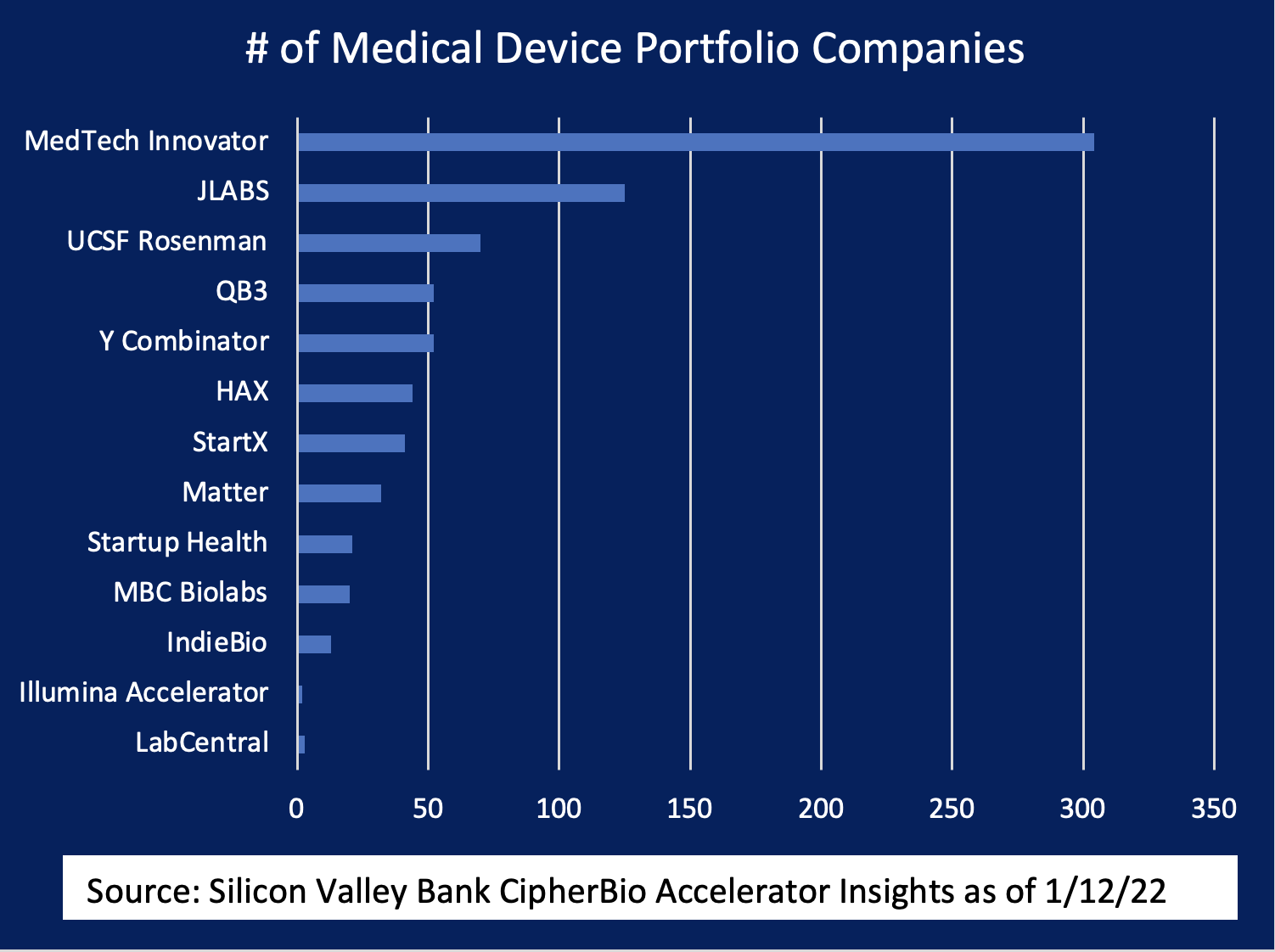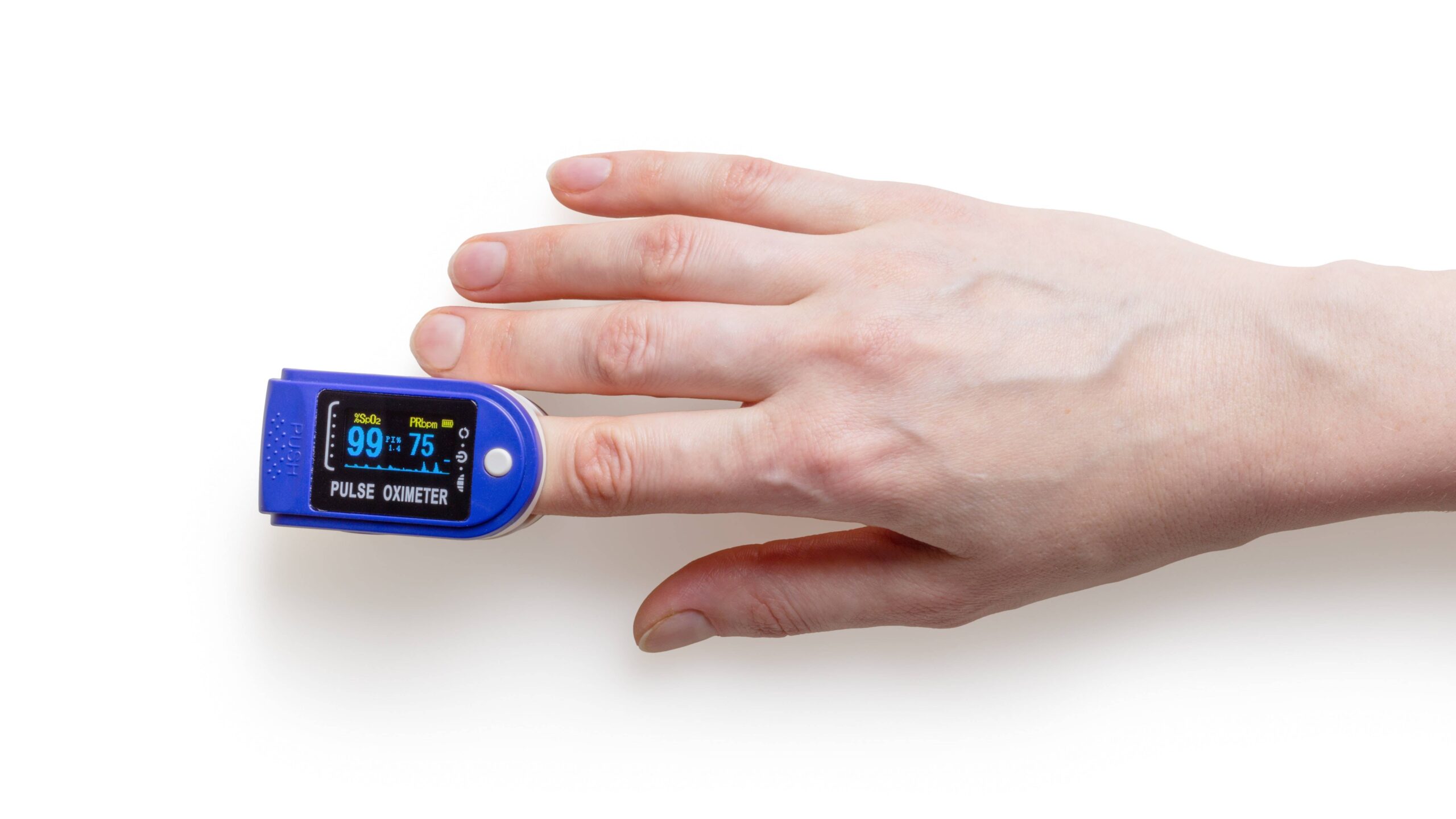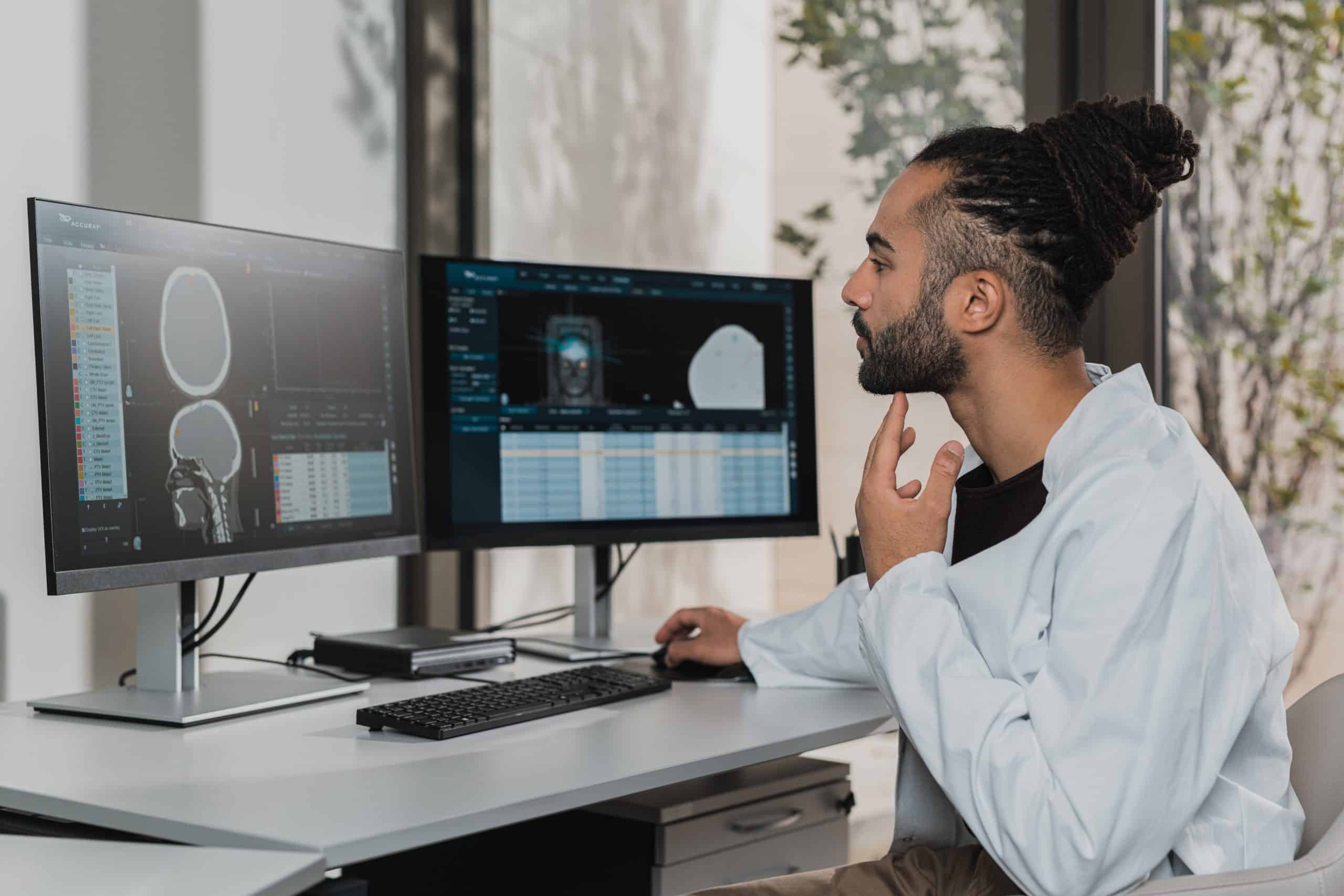Spotlight on Medical Device Incubators and Accelerators
In the realm of startup complexity, medical device company startups are at the top of the list. Not only do founders face the same uncertainty and funding challenges all startups must overcome, but they also face a maze of regulatory hurdles as well.
Founders may have genius IP but if the right ecosystem of team expertise, connections, and funding is not in place, it is very hard to get traction to finally have a successful launch. Stakeholders such as educational institutions and investor groups realize this. Several have formed medical device incubators and accelerators to provide the ecosystem founders need to increase chances of success.
Similar to top-tier universities, admission to the top incubator/accelerator programs is competitive. The acceptance rate can be as low as 1.5%. By comparison, the average US medical school acceptance rate is 5.5%.
While incubators and accelerators have similar goals, you might be wondering what the difference is between the two. The main differences between the incubator and accelerator are the company stage, funding options, and location.
Medical Device Incubators are Perfect for Ideation
Much like their namesake suggests, incubators serve founders in the earliest stages. They often develop their idea and business model in an incubator. Unlike an accelerator, the time in an incubator can be open-ended. This flexibility is ideal for founders fine-tuning their business plan and product-market fit.
Incubators offer networking, mentorship, community connections, and business-building resources. Most incubators are dedicated co-working spaces, making it easier to trade advice over the water cooler. Incubators are not set up to scale employees and may not work well for larger teams.
If you are interested in joining an incubator, be sure to ask questions about outcomes. What is the experience for current and former members? What is the success rate for companies after they leave the incubator?
Accelerators for Speeding up Growth for Startups
If the incubator’s goal is to hatch the startup, then the accelerator is all about funding and flight.
An accelerator helps a startup attract funding to grow more quickly. It is like flight school for a new venture that wants to fly further, faster.
The accelerator experience offers connections, mentorship, and seed funding. This helps the startup achieve more growth in less time than they would on their own. A key difference for an accelerator is the company has proof of product-market fit. They have some customers and growth and now want to capitalize on that as soon as possible. In some accelerators, startups receive seed funding in return for a small stake in the company.
Incubators tend to attract founders and stakeholders from a local area. Accelerators attract entrepreneurs who may need to relocate to take part in the program. Accelerators may also provide office space, rather than an open co-working setting.
The relocation aspect is one reason why accelerators have fixed start and end dates. Unlike some incubators, you can’t stay in an accelerator for an indefinite amount of time.
In this post, we’ll look at five top incubators and accelerators available for medical device startups.
TMCi – Texas Medical Center Innovation
Location: Houston, Texas
With seven hospitals ranked among the best in the nation and a global reputation for excellence, the TMC is a leading center for healthcare delivery, teaching, and research. The TMC’s accelerator, TMCi, leads with a mission to increase the quality and quantity of healthcare startup density in Houston.
TMCi offers access to key stakeholders from the TMC member institution, global advisors, and corporate partners. Examples of the ecosystem in action include Johnson and Johnson Innovation JLABs and the nearby AT&T Foundry for Connected Health.
TMCi has over 100,000 square feet of dedicated space It has incubated companies like BetterConsult, Meru Health, Arterys, and more.
Launched in 2021, the TMC Healthtech Accelerator has served 221 startups, raised $5.82B to date, had 8 successful company exits, 305 life sciences startups, and 7 bio-design companies with $33M raised.
TMC Innovation includes three different programs:
TMCi – Accelerator for cancer therapeutics
A CPRIT grant-funded accelerator program for Texas-based academic investigators and early-stage cancer therapeutics biotech companies.
TMCi Biodesign – From problem to product and launch
TMC Biodesign is a one-year program bringing together the talents of diverse innovators to fast-track bringing breakthrough products to market.
TMCi – Accelerator for health tech
This accelerator supports health IT and medical device company entrepreneurs with office space and connections support to the abundant resources of the Texas Medical Center.
Houston, the 4th largest US city, is diverse with a reputation for being pro-business and offering high value for the cost of living relative to other cities in the US. Houston’s cost of living is estimated to be 8% below the national average.
Website: http://tmc.edu/innovation/innovation-programs/
Twitter: @TMCInnovation
Rosenman Institute
Location: San Francisco, California
Located at the University of California, San Francisco (UCSF), the Rosenman Institute is a non-profit, health and biotechnology initiative that brings together entrepreneurs, investors, and industry experts to help launch MedTech startups.
The Institute’s mission is to “enterprise innovation by assisting entrepreneurs to grow technologies from idea to commercialization”.
Dan Roseman worked for over 25 years with medical startups in the Bay Area. His wife and friends founded the Institute in his honor after he passed away prematurely in 2014 at age 50. The founding partners were the Department of Bioengineering, Surgery, friends of Rosenman, and QB3, UC’s hub for innovation and entrepreneurship in life science.
Unlike some other university-based programs, entrepreneurs do not need to be affiliated with the UC system to apply to the Institute. Every year the Institute selects participants for the Rosenman Innovators Program. In seven years over 90 Rosenman Innovator startups have raised more than $480 million in capital.
UCSF is located near the east end of Golden Gate Park in San Francisco. San Franciso is as famous for its streetcars as it is for its high cost of living, with an index making it almost twice as expensive (94%) as the national average.
Website: https://rosenmaninstitute.org/
Twitter: https://twitter.com/RosenmanInst
HAX.CO
Location: San Francisco, Shenzhen, and Tokyo
HAX styles itself as “hands-on venture capital for hard tech.” Working in the industrial, health, and consumer product sectors, HAX acts as a feeder program for SOSV, a global venture capital firm providing multi-stage investment for founders. HAX supports and grooms pre-seed hard tech startups.
Most medical device startups qualify as hard tech projects in that they are trying to solve a complex problem and require a long R&D timeline with substantial capital investment before launch.
The Seed Program at HAX combines a $250,000 investment with 6 months of hands-on collaboration and access to a global founder community. The Seed Program’s purpose is to help teams mitigate risk in their core technology and business, positioning them to raise a significant seed round investment within 6-12 months.
The first HAX Accelerator program took place in Shenzhen in 2012. As of June 2020, over 250 startups have participated in HAX programs. In July 2022, HAX announced a new program – the HAX Venture Fellowship, a one-year program for founders and investors.
HAX: https://hax.co/
Twitter: https://twitter.com/hax_co
StartX Med
Location: Palo Alto, California
StartX Med is Stanford University and Stanford Hospital’s medical accelerator program. It is a division of the larger StartX non-profit organization, launched in 2011 to leverage Stanford’s ecosystem for startups.
Unlike many incubators, StartX does not take equity shares in startup companies. Since its inception, StartX has served over 700 startups and its current ecosystem includes 1600 founders. Its companies have a combined valuation of $26B. The average amount raised per company is $11M.
Stanford University and Stanford Healthcare have contributed $200M to build the StartX services and community. To help startups get their first crucial sales and beyond, StartX offers access to a large customer network. It also sponsors founder and executive committees.
StartX founded StartX Med to focus on the medical vertical. StartX Med works to advance breakthrough healthcare technologies by accelerating the development of Stanford’s medical entrepreneurs.
StartX Med companies received 24 FDA approvals over the last four years. StartX claims their startups see an average of 1.7x increase in valuations vs. non-StartX companies.
Palo Alto is located near San Francisco and attracts some of the smartest, most diverse people on the planet. The Bay Area is one of the most expensive regions of the US. Palo Alto’s cost of living is 59% higher than the national average.
Website: https://startx.com/
Twitter @StartXMed
Medtech Innovator
Location: Various
MedTech Innovator is a nonprofit global competition and accelerator for medical device, digital health, and diagnostic companies. Based on a number of companies served, MedTech Innovator is the industry’s largest medical device accelerator in the world.
Although MedTech Innovator is based in Los Angeles, it doesn’t have incubator facilities or a permanent location for its accelerator. Judges choose 50 startups from a short list of 1000 global applications. The accelerator experience provides fast-track visibility and access to leading MedTech manufacturers, investors, providers, and other industry stakeholders.
To kick off the 4-month accelerator program, leadership teams attend networking events and workshops with partners and other industry leaders in different cities each year. Finalist teams present at AdvaMed’s MedTech Conference for a chance for additional benefits, including office space with JLabs.
MedTech Innovator’s accelerator has a 5% acceptance rate, with the 50 chosen startups selected from a pool of applicants representing 49 countries and 43 U.S. states. 28 early-stage companies also receive corporate mentorship.
MedTech Innovator does not require equity and there is no application fee.
Website: https://medtechinnovator.org/
Twitter @MedTechAwards
Looking Ahead
M1 MedTech launched in April 2022 and is another up-and-coming medical device incubator to watch. Based in Houston and serving startups virtually throughout the world, M1 focuses on a virtual learning approach, delivering a rigorous curriculum in a university boot camp style. M1 takes an equity stake and provides three months of instruction to speed up business and product development.
The MedTech industry is far-reaching, with stakeholders spread across the globe. Accelerators and incubators can provide direct access and facility support for startups that don’t have the time or funds to cultivate a robust ecosystem for their project.
At Galen Data, we have experience with startups working with accelerators and incubators. If you have questions about how an accelerator program might fit into your development roadmap, give us a call today.







